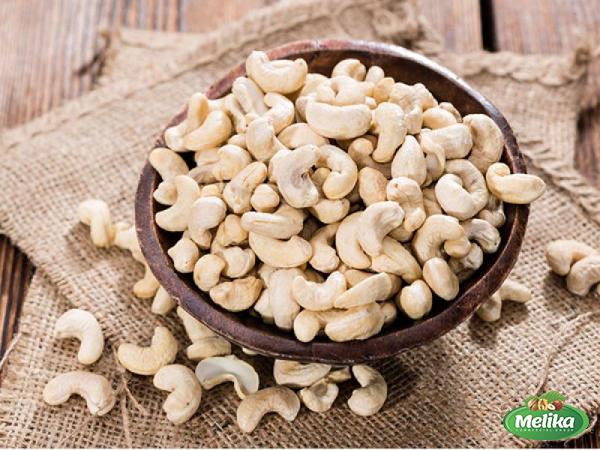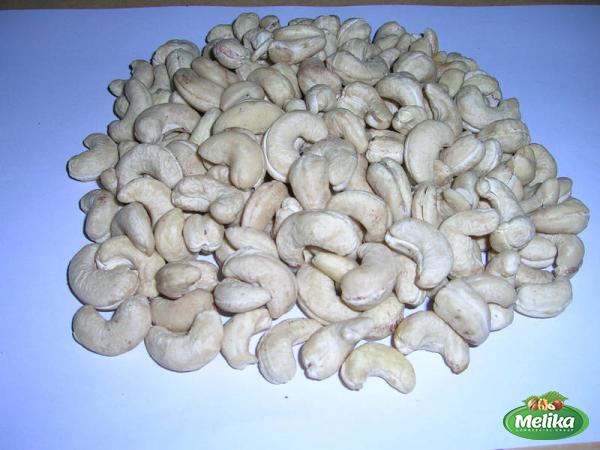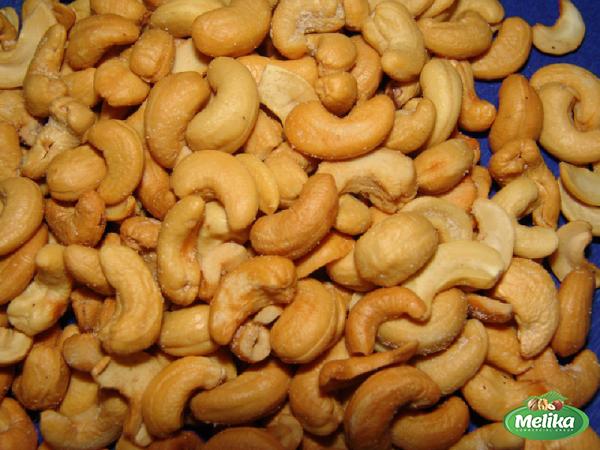Cashew nuts are a highly sought-after and economically significant commodity in the global food market. With their delicious and creamy taste and broad range of culinary applications, cashew nuts have become an essential ingredient in various cuisines worldwide. This article will delve into the world of cashew nuts, focusing specifically on the bulk wholesale market. We will discuss the production process, factors influencing wholesale prices, key suppliers, major consumers, and potential growth opportunities within the industry. 1. Cashew Nut Production and Processing: Cashew nuts are primarily grown in tropical regions such as India, Vietnam, Brazil, and various African countries. The cashew tree produces both the cashew apple and the cashew nut, with the nut being the most economically valuable part. The harvesting process involves carefully removing the outer shell, known as the cashew apple, then drying and roasting the captured nut to achieve the desirable taste and texture. 2. Factors Influencing Wholesale Prices: Several factors contribute to the wholesale prices of cashew nuts. These include climate conditions, agricultural practices, government regulations, production volume, and the global demand-supply dynamics. Fluctuations in these factors can significantly impact the wholesale prices, making cashew nut trading a complex and dynamic market. 3. Major Wholesale Suppliers: Key players in the wholesale cashew nut industry include farmers, processors, exporters, and wholesalers. Countries such as India, Vietnam, and Brazil dominate the market as significant exporters and wholesale suppliers. These nations have established robust supply chains, ensuring a consistent flow of high-quality cashew nuts to meet global demand. Other emerging suppliers include African countries like Ivory Coast, Nigeria, and Tanzania, which are steadily increasing their production and export capacities. 4. Major Wholesale Consumers: Cashew nuts find application in various industries, including the food and beverage sector, confectionery and snack industry, and the growing demand for plant-based milk alternatives. Additionally, the rising popularity of health-conscious diets and an increasing awareness of the nutritional benefits of cashew nuts have contributed to their consumption growth.

nuts
 Wholesale buyers include food manufacturers, nut butter producers, international restaurant chains, and large-scale retail supermarkets. 5. Potential Growth Opportunities: The cashew nut wholesale industry offers several growth opportunities for both existing and new market entrants. These opportunities arise from factors such as booming demand, technological advancements in processing and preservation methods, diversification of product offerings, and exploring new export markets. Additionally, the surge in vegetarian and vegan lifestyles presents an opportunity for cashew nuts to replace animal-based protein sources in various food products. 6. Challenges in the Wholesale Cashew Nut Industry: Despite the potential for growth, the wholesale cashew nut industry faces certain challenges that need to be addressed. These challenges include price volatility due to global market uncertainties, quality control issues throughout the supply chain, lack of transparency in pricing mechanisms, and the impact of climate change on cashew nut cultivation. Moreover, ensuring sustainable and ethical practices in cashew nut production is becoming increasingly important to meet the growing demand from socially responsible consumers. 7. Certification and Quality Standards: To ensure the quality, safety, and ethical production practices of cashew nuts, various certification and quality standards have been implemented. The most recognized and commonly adopted certifications include Hazard Analysis and Critical Control Points (HACCP), ISO 9001, ISO 22000, and Fairtrade. Compliance with these standards enhances market visibility and ensures ethical business practices throughout the cashew nut supply chain. Conclusion: Bulk wholesale cashew nuts continue to be a lucrative market segment within the global food industry. With increasing demand from various sectors and the rise of health-conscious consumer preferences, the cashew nut industry presents immense opportunities for growers, processors, and exporters. However, it is vital for stakeholders to address the challenges in the industry, including price volatility, quality control, sustainability, and ethical production practices. By doing so and exploring technological advancements, the wholesale cashew nut industry can thrive and meet the growing global demand for this versatile and delicious nut.1. Increasing Global Demand for Cashew Nuts: The demand for cashew nuts has been steadily increasing in recent years, driven by factors such as changing consumer preferences, rising disposable incomes, and the versatility of cashew nuts in various food applications. The increasing popularity of healthy snacking, plant-based diets, and the use of cashew nuts as a dairy alternative have contributed to the growing demand for bulk wholesale cashews. 2. Health Benefits and Nutritional Value: Cashew nuts are not only loved for their great taste but also for their nutritional value. They are a rich source of healthy fats, protein, dietary fiber, vitamins, and minerals, making them a wholesome and nutritious food option.
Wholesale buyers include food manufacturers, nut butter producers, international restaurant chains, and large-scale retail supermarkets. 5. Potential Growth Opportunities: The cashew nut wholesale industry offers several growth opportunities for both existing and new market entrants. These opportunities arise from factors such as booming demand, technological advancements in processing and preservation methods, diversification of product offerings, and exploring new export markets. Additionally, the surge in vegetarian and vegan lifestyles presents an opportunity for cashew nuts to replace animal-based protein sources in various food products. 6. Challenges in the Wholesale Cashew Nut Industry: Despite the potential for growth, the wholesale cashew nut industry faces certain challenges that need to be addressed. These challenges include price volatility due to global market uncertainties, quality control issues throughout the supply chain, lack of transparency in pricing mechanisms, and the impact of climate change on cashew nut cultivation. Moreover, ensuring sustainable and ethical practices in cashew nut production is becoming increasingly important to meet the growing demand from socially responsible consumers. 7. Certification and Quality Standards: To ensure the quality, safety, and ethical production practices of cashew nuts, various certification and quality standards have been implemented. The most recognized and commonly adopted certifications include Hazard Analysis and Critical Control Points (HACCP), ISO 9001, ISO 22000, and Fairtrade. Compliance with these standards enhances market visibility and ensures ethical business practices throughout the cashew nut supply chain. Conclusion: Bulk wholesale cashew nuts continue to be a lucrative market segment within the global food industry. With increasing demand from various sectors and the rise of health-conscious consumer preferences, the cashew nut industry presents immense opportunities for growers, processors, and exporters. However, it is vital for stakeholders to address the challenges in the industry, including price volatility, quality control, sustainability, and ethical production practices. By doing so and exploring technological advancements, the wholesale cashew nut industry can thrive and meet the growing global demand for this versatile and delicious nut.1. Increasing Global Demand for Cashew Nuts: The demand for cashew nuts has been steadily increasing in recent years, driven by factors such as changing consumer preferences, rising disposable incomes, and the versatility of cashew nuts in various food applications. The increasing popularity of healthy snacking, plant-based diets, and the use of cashew nuts as a dairy alternative have contributed to the growing demand for bulk wholesale cashews. 2. Health Benefits and Nutritional Value: Cashew nuts are not only loved for their great taste but also for their nutritional value. They are a rich source of healthy fats, protein, dietary fiber, vitamins, and minerals, making them a wholesome and nutritious food option.
Specifications of nuts
 The presence of beneficial compounds like antioxidants, omega-3 fatty acids, and various minerals (such as magnesium, copper, and zinc) further enhances the health benefits associated with consuming cashew nuts. 3. Cashew Nut Processing Techniques: To ensure the highest quality of cashew nuts in the wholesale market, proper processing techniques are crucial. This involves a series of steps, including de-shelling, grading, drying, and roasting. Careful attention is given to ensuring the removal of toxic substances, such as cashew nut shell liquid (CNSL), which can cause skin irritations if not properly processed. Modern processing techniques have greatly improved efficiency and output, ensuring that cashew nuts meet the strict quality standards demanded by wholesale buyers. 4. Market Price Fluctuations and Risk Management: Wholesale cashew nut prices can be subject to significant fluctuations due to various factors, including climate conditions, global supply and demand dynamics, and currency exchange rates. These fluctuations can pose a challenge for both buyers and sellers in managing their risk exposure. Wholesale buyers and sellers often employ risk management strategies, such as futures contracts, options, and hedging, to mitigate the impact of price volatility. 5. Market Analysis: Global Cashew Nut Industry: The global cashew nut market was valued at approximately $10.2 billion in 2020 and is expected to grow at a CAGR of around 5.4% from 2021 to 2028. Key factors driving market growth include the increasing consumer demand for healthier snack options, a rising number of vegan and vegetarian lifestyles, and the expansion of cashews’ use in culinary applications. Additionally, the growing popularity of international cuisines, particularly in developed economies, has contributed to the increased consumption of cashew nuts. 6. Key Wholesale Cashew Nut Suppliers: India is the largest producer and exporter of cashew nuts, accounting for approximately 60% of global production. The country boasts a well-developed infrastructure for cashew processing and a wide network of farmers and exporters. Vietnam ranks second in terms of production and export, with Brazil, the Ivory Coast, Nigeria, and Tanzania also significant producers in the global cashew nut market.
The presence of beneficial compounds like antioxidants, omega-3 fatty acids, and various minerals (such as magnesium, copper, and zinc) further enhances the health benefits associated with consuming cashew nuts. 3. Cashew Nut Processing Techniques: To ensure the highest quality of cashew nuts in the wholesale market, proper processing techniques are crucial. This involves a series of steps, including de-shelling, grading, drying, and roasting. Careful attention is given to ensuring the removal of toxic substances, such as cashew nut shell liquid (CNSL), which can cause skin irritations if not properly processed. Modern processing techniques have greatly improved efficiency and output, ensuring that cashew nuts meet the strict quality standards demanded by wholesale buyers. 4. Market Price Fluctuations and Risk Management: Wholesale cashew nut prices can be subject to significant fluctuations due to various factors, including climate conditions, global supply and demand dynamics, and currency exchange rates. These fluctuations can pose a challenge for both buyers and sellers in managing their risk exposure. Wholesale buyers and sellers often employ risk management strategies, such as futures contracts, options, and hedging, to mitigate the impact of price volatility. 5. Market Analysis: Global Cashew Nut Industry: The global cashew nut market was valued at approximately $10.2 billion in 2020 and is expected to grow at a CAGR of around 5.4% from 2021 to 2028. Key factors driving market growth include the increasing consumer demand for healthier snack options, a rising number of vegan and vegetarian lifestyles, and the expansion of cashews’ use in culinary applications. Additionally, the growing popularity of international cuisines, particularly in developed economies, has contributed to the increased consumption of cashew nuts. 6. Key Wholesale Cashew Nut Suppliers: India is the largest producer and exporter of cashew nuts, accounting for approximately 60% of global production. The country boasts a well-developed infrastructure for cashew processing and a wide network of farmers and exporters. Vietnam ranks second in terms of production and export, with Brazil, the Ivory Coast, Nigeria, and Tanzania also significant producers in the global cashew nut market.
buy nuts
 These countries have favorable climatic conditions, well-established value chains, and an abundance of natural resources required for cashew nut cultivation. 7. Major Wholesale Consumers and Market Segmentation: The wholesale cashew nut market caters to various industries, including the food and beverage sector, confectionery and snack industry, and the nut butter manufacturing industry. Cashew nuts are widely used in baked goods, chocolates, ice creams, breakfast cereals, and as a topping for salads. Furthermore, the increasing demand for plant-based milk alternatives has boosted the consumption of cashew nuts for the production of dairy-free beverages such as cashew milk. 8. Emerging Trends in Cashew Nut Processing and Product Innovation: To cater to evolving consumer preferences, the wholesale cashew nut industry has witnessed various trends in processing and product innovation. These include the development of flavored and roasted cashew nuts, the production of organic and sustainably sourced cashews, and the introduction of value-added products such as cashew nut butter and cashew-based snacks. These trends contribute to expanding the market scope and attracting a wider consumer base. 9. Export Market Opportunities: While the demand for cashew nuts is growing globally, there are still untapped export markets with immense potential. Developing economies, such as China, Indonesia, and Middle Eastern countries, are experiencing rapid urbanization and a rising middle class, leading to increased consumption of cashew nuts. Exploring and establishing trade relationships with these emerging markets presents significant opportunities for wholesale cashew nut suppliers. 10. Sustainable and Ethical Practices: With an increasing emphasis on sustainability and ethical sourcing, the wholesale cashew nut industry is expected to adopt practices that fulfill these requirements. This includes promoting sustainable farming techniques, reducing waste throughout the supply chain, and ensuring fair trade practices. Certifications such as Fairtrade and Rainforest Alliance play a crucial role in assuring buyers of the ethical and sustainable production of cashew nuts. Conclusion: The bulk wholesale cashew nut market offers tremendous opportunities for suppliers, processors, and exporters. The increasing global demand for healthier snacks and plant-based alternatives, coupled with the expanding applications of cashew nuts in various industries, drives growth in the industry. However, market participants need to stay updated on market trends, invest in quality control measures, manage price fluctuations effectively, and adopt sustainable practices to maintain a competitive edge in the market. With the right strategies, the wholesale cashew nut industry is poised for continued growth and success in the years to come.
These countries have favorable climatic conditions, well-established value chains, and an abundance of natural resources required for cashew nut cultivation. 7. Major Wholesale Consumers and Market Segmentation: The wholesale cashew nut market caters to various industries, including the food and beverage sector, confectionery and snack industry, and the nut butter manufacturing industry. Cashew nuts are widely used in baked goods, chocolates, ice creams, breakfast cereals, and as a topping for salads. Furthermore, the increasing demand for plant-based milk alternatives has boosted the consumption of cashew nuts for the production of dairy-free beverages such as cashew milk. 8. Emerging Trends in Cashew Nut Processing and Product Innovation: To cater to evolving consumer preferences, the wholesale cashew nut industry has witnessed various trends in processing and product innovation. These include the development of flavored and roasted cashew nuts, the production of organic and sustainably sourced cashews, and the introduction of value-added products such as cashew nut butter and cashew-based snacks. These trends contribute to expanding the market scope and attracting a wider consumer base. 9. Export Market Opportunities: While the demand for cashew nuts is growing globally, there are still untapped export markets with immense potential. Developing economies, such as China, Indonesia, and Middle Eastern countries, are experiencing rapid urbanization and a rising middle class, leading to increased consumption of cashew nuts. Exploring and establishing trade relationships with these emerging markets presents significant opportunities for wholesale cashew nut suppliers. 10. Sustainable and Ethical Practices: With an increasing emphasis on sustainability and ethical sourcing, the wholesale cashew nut industry is expected to adopt practices that fulfill these requirements. This includes promoting sustainable farming techniques, reducing waste throughout the supply chain, and ensuring fair trade practices. Certifications such as Fairtrade and Rainforest Alliance play a crucial role in assuring buyers of the ethical and sustainable production of cashew nuts. Conclusion: The bulk wholesale cashew nut market offers tremendous opportunities for suppliers, processors, and exporters. The increasing global demand for healthier snacks and plant-based alternatives, coupled with the expanding applications of cashew nuts in various industries, drives growth in the industry. However, market participants need to stay updated on market trends, invest in quality control measures, manage price fluctuations effectively, and adopt sustainable practices to maintain a competitive edge in the market. With the right strategies, the wholesale cashew nut industry is poised for continued growth and success in the years to come.











Your comment submitted.